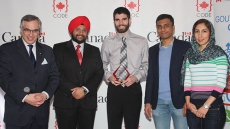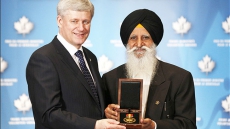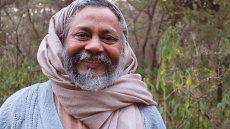The most-awaited question of the 2018 Municipal Election lingers on: Is Surrey ready for her first-ever South Asian mayor?
100 different languages. 1,000 new residents each month. 1/3 of a population under 19. This is Surrey.
As the second largest city in British Columbia, Surrey boasts a population of over 500,000, which continues to increase and is expected to surpass Vancouver as the largest city in the province by 2041. Undoubtedly, in a thriving, growing city such as Surrey, those holding the political reins hold utmost responsibility and power.
In the upcoming Municipal Elections, Surrey’s citizens will have the opportunity to voice their choice of six School Trustees, eight Councillors, and one Mayor. What stands unique to this year’s elections is a mayoral candidate, of South Asian descent, presenting a serious challenge to be the first South Asian mayor that Metro Vancouver has seen – four-term City Councillor, Tom Gill.
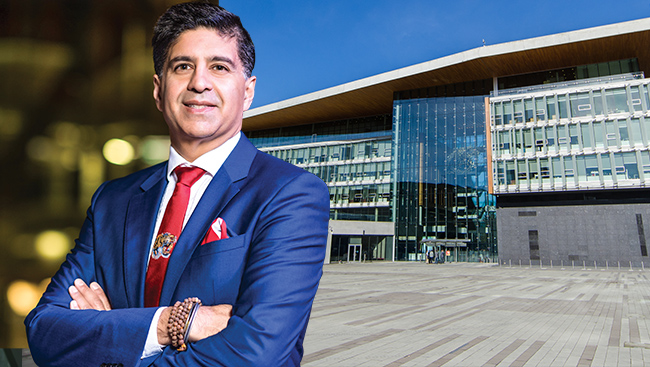
Serving on the City Council since 2005 and raising a family of three children with his wife, the mayoral candidate and current Councillor brings perspective from both the arena and the backstage. Gill has called Surrey home for the past 30 years and has seen the city blossom into a hub of potential and opportunities.
With his experience and passion for the community, he has now taken on the challenge of running for the position of Mayor in Surrey’s 2018 Municipal Elections. DARPAN had a candid chat with him regarding his plans for Surrey and his views and solutions to some of the crucial issues the city is currently facing.
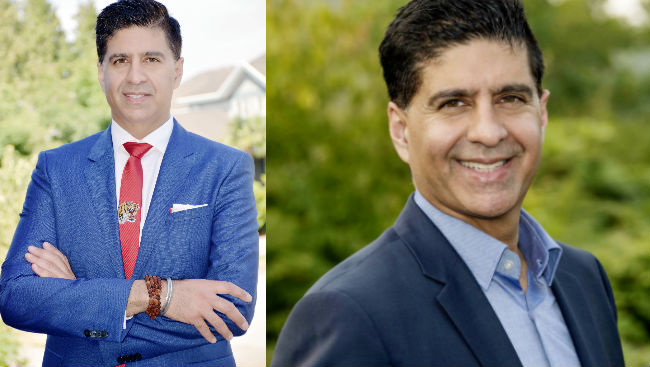
As part of his platform, Gill clearly puts forth his intentions of recreating Surrey into a 21st century city. Gone are the days when Surrey was considered merely a suburban city outside of Vancouver.
Rather, the city is at the cusp of a transformation, where we are now imagining how the city can be redefined to engage the world in showing that we can do business here, while offering the best quality of life in the world. According to Gill, our asset is our diversity, which can be used to provide a distinct advantage.
Given that a significant portion of Surrey’s population is that of the younger fabric, he points out the importance of integrating technology – in both post-secondary and business settings – to create efficiencies and begin the shift away from the traditional construction and development industries upon which the city has depended.

In this light, when asked about Surrey’s land development processes and the increasing concern of an unaffordable housing market, Gill does not shy away from accepting that the city does, indeed, have the highest new development cost charges.
However, he maintains that the system is set up this way so that the tax base is not used to subsidize new developments, “I don’t want tax-paying residents to fund new development; I want developers to pay. It takes time because we need to get it right.”
Moreover, for rather than assuming developers make over-the-top profits, Gill urges citizens to consider that developers themselves face rising cost pressures from vendors of raw inputs such as lumber, drywall and steel, alongside an element of risk. Hence, there needs to be a partnership between residents, developers and the city in working together to address these issues.
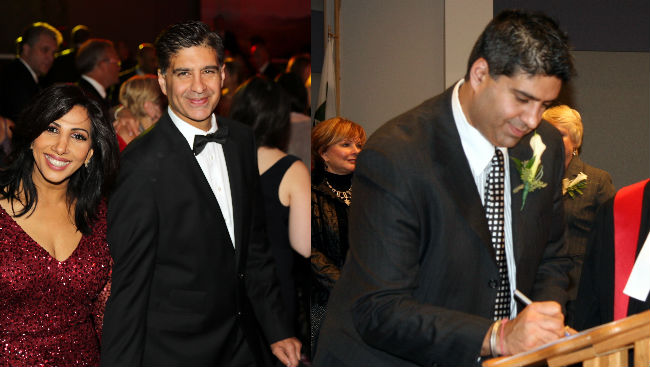
In fact, Gill repeatedly emphasizes the power of engaging the community in making decisions that impact the city. When speaking about the pressing issues of gang violence, crime and drug abuse, he outlines the need for community referendums that ask for citizens’ contributions.
For instance, Gill brings attention to the existing government structure that is devoid of a local source of decision-making. While the municipal government can provide resources to the RCMP, the allocation of those resources is at the RCMP’s discretion. In the ongoing debate around the potential need for a municipal police force to tackle Surrey’s rising gang violence issues, Gill pushes a) robust cost-benefit analyses to determine whether we, as a community, are willing to bear the costs and b) a community conversation on resizing our police force and questioning if we have enough members.
A Chartered Professional Accountant (CPA), Gill speaks of an outcome-based approach in creating solutions, “I am comfortable making an investment, but I want to be able to go to the provincial government and provide proof that we have results.”
Regardless, revamping the police force is not the sole solution. Gill envisions a different plan of implementation than seen before when it comes to the rising problem of gang activity. Historically, the municipal government has generally avoided entering areas that have not been its direct responsibility.
However, given the severity of recent incidents, Gill wants to take a two-pronged approach centered around the pillars of intervention and prevention with a five-year commitment comprising of plan worth $50 million dollars. A comprehensive plan for kids that need assistance will be put together through a focused intervention strategy surrounding initiatives that involve critical counselling and parental education.
Further, the provincial and federal government will be asked for assistance towards prevention, a vital component of which involves banning handguns and automatic weapons – a position that Gill firmly and clearly holds. Given that the number of legal firearms sold has essentially doubled in the last year in Canada, prohibiting the private sale of firearms can make an immensely positive impact according to Gill.
With 200-300 firearm-related homicides per year in a country of 36 million, he shines the spotlight onto successful examples in Australia, Japan and the UK, where public opinion has changed given the significantly noteworthy decreases in firearm-related homicides and suicides. Through such initiatives, government involvement can create direct impact on the quality of life that residents enjoy in the city by creating a crime-free, safe environment.
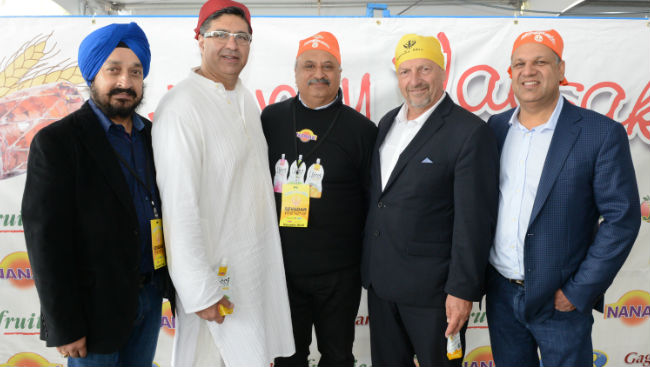
As a matter of fact, an example of successful government intervention is Surrey’s bustling downtown core. Although many still do not recognize the success, Surrey’s Whalley area has cleaned up and taken off over the past few years as incredible investments have been made.
Gill shares his take on expediating and speeding up the process of building a healthy downtown core for the city, “We’ve got 21,000 residential units to be built in the downtown of Surrey. Complementing that development with activity is key – be it increased cultural-based programs or business-related head office relocations. It’s important to understand that at one time, everyone had to go to Downtown Vancouver to work. Now, the culture shift is that we want people to work, live and play in Surrey.”
To make this possible, Gill provides his stance on building a robust transit system that allows for ease of transportation within Surrey. In support of the Surrey Light Rail Transit (LRT) project, he talks of a changing ridership that cannot be fully serviced through the SkyTrain, “The LRT is widely misunderstood. People need to understand that there will be densities entirely along the LRT line, not at stops. LRT stops will be at 800 meters distances, whereas SkyTrain stops can be two to three kilometers in distance. Imagine the ease of accessibility for seniors with no staircases to climb and increased comfort for parents with strollers.”
To combat potential issues with traffic, it will be ensured that roads are not compromised by employing at least two lanes of traffic, great separation and effective curving to prevent accidents. With five million anticipated users of the Surrey-Newton-Guildford line phase of the project alone, Gill stands in favour of implementing the 150-kilometer rail.
He reminds the public that changing the line into a SkyTrain translates to an additional billion dollars, which will close the doors for future funds from the provincial or federal governments for the next decade, “The numbers simply do not work when it comes to the SkyTrain. Practically a SkyTrain itself on the ground, the LRT is a high caliber and high-quality technology that permits us to be able to modify the transportation source for our community.”
Gill’s perspective on implementing the LRT in Surrey is in line with creating culture and an entertainment district within the city, so that citizens are no longer going to Downtown Vancouver for experiences.
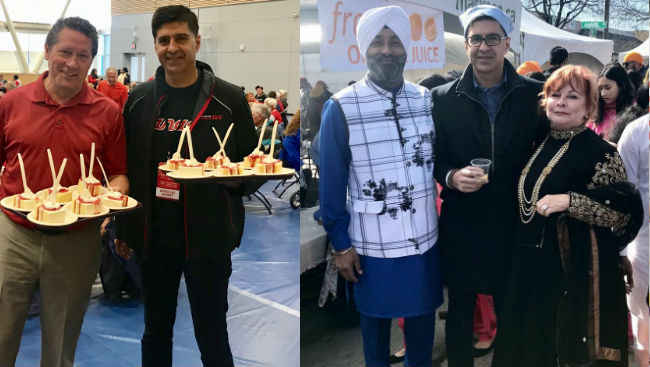
According to him, by having a matrix to get around the city without relying on vehicles, we can truly pave the way towards a future that is going to be superior than any other place. Be it our recreation center amenities, pools, ice rinks, or gymnasiums, Gill and his team at Surrey First want to give these structures culture and place emphasis on architectural design, “Civic pride has been lacking in the past, but we are now emerging as leaders. We want people to be wowed.”
When it comes to creating these changes, Gill is confident that his team will deliver, “When considering diversity, we looked at gender, education and various other characteristics to put together a team. I am proud to say that each member brings a high level of education and experience to the table. It took me some time to find the right people, but the team is going to be by far the most sophisticated one ever presented.” The motivated group of young, energetic individuals are truly reflective of the diverse cityscape of Surrey.
When asked what his coping mechanism is when such challenges arise, Gill says that he does not let the attempts of discouragement take charge. Alluding to the recent instance in which malicious flyers and damaging rumors were dispersed around the community, he holds that others’ lack of integrity is a concern, but will not put him down, “I’ve gone through 12 years without a blemish. I believe that there are individuals out there who were trying to tarnish that image, but this community is above that and people are smart. I am hoping people can reconcile with what I am offering.”
Gill shares that one of the most important things he has learned so far is that many professionals shy away from running for office; the impact of social backlash and platforms such as social media cannot be underestimated as they do have a profound impact. Yet, Gill stays dedicated to making Surrey the best city in North America, “I am so committed that I’m turning a blind eye to individuals who have caused this grief. It’s important to make changes and stand firm to show the community that despite these challenges, I am going to march on.”
Governing and responsibly growing a budding city such as Surrey is no easy feat, especially while exemplifying what it means to be a citizen of Surrey. Rooted in a culture of constructive engagement and a philosophy of collaboration and harmony, Gill wraps up by summarizing his top three priorities for Surrey as he runs for the mayoral role:
Crime and Public Safety: The team will have the community work together to contribute their insights through decision-making via referendums. Aside from reducing access to guns, determining if we have outgrown the RCMP is pivotal in moving forward.
Robust Transportation System: After the implementation of the 10.5 kilometers LRT as part of the Surrey-Newton-Guildford Line, resources will be put towards funding and executing the construction of the remaining 140 kilometers of the new in-city transportation system.
New Developments: By creating partnerships between the City, developers and residents, measures will be taken to address issues such as supply as part of the housing crisis. In tandem will be the promotion of amenities and creative cultural structures such as stadiums, recreation centers and performing arts centers.
Although Surrey is home to a predominantly South Asian population, the chair of the mayor has still not seated a leader of South Asian descent. Just as Harjit Singh Sajjan made his mark by becoming Canada’s first Sikh Minister of Defense, Jagmeet Singh became the leader of the NDP Party, and Ujjal Dosanjh was the first Indo-Canadian premier of B.C., the upcoming Municipal Election in Surrey can potentially write history in similar light.
In steering the direction of the future, the power lies – quite literally – in the hands of the voter, you. Awareness and education is just the beginning. By making an informed decision and taking the time to cast our votes to whichever candidate we deem fit, we can and must take action. Until then, the most-awaited question of the 2018 Municipal Election lingers on: Is Surrey ready for her first-ever South Asian mayor?
Cover Photo: Amastermedia
Image courtesy: City Of Surrey, Tom Gill

